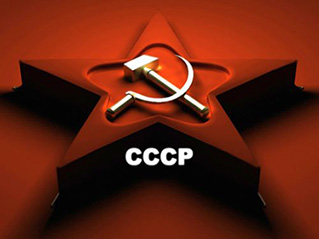
The Soviet Union Internal Security
The Soviet Union system had to protect itself from internal and external threats by creating a strong security system. The system included the police patrols, strong judicial departments and prosecution department as well as an external security and foreign intelligence departments.
The Soviet Union security, or political, police had a long history, dating back to the pre revolutionary, tsarist period. Although the tsarist political police was ruthless and unscrupulous, the police organs established by Vladimir I. Lenin and the Bolsheviks in 1917, known as the Vecheka, far surpassed their predecessors in terms of terror and violence. The Bolsheviks allowed the Vecheka almost unrestricted powers to persecute those who were perceived as “class enemies.” This set the stage for the development of the brutal Stalinist police state, in which millions of innocent victims perished at the hands of the political police, controlled by Joseph V. Stalin.
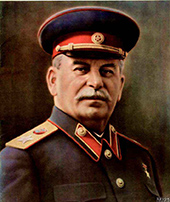
Soviet Union history: Joseph V. Stalin
After Stalin died, Nikita S. Khrushchev initiated legal reforms and reorganized the police apparatus. The terror ended abruptly, and the political police were brought under the control of the Communist Party of the Soviet Union (CPSU). The Committee for State Security -KGB, established in March 1954, was tasked with security functions, and the Ministry of Internal Affairs (MVD) was charged with combating ordinary crime and maintaining the extensive network of labor camps. A new legal code was established to replace the Stalinist laws, and both the security police and the regular police were subjected to procedural norms and regulations in carrying out their functions. Nevertheless, the party leadership did not eliminate all the legal loopholes and allowed the KGB to circumvent the law when combating political dissent. The KGB also played an important role in implementing the anti corruption campaign, which resulted in the ouster of many state and party officials after General Secretary Leonid I. Brezhnev died. Among its other tasks were guarding the leadership and important government buildings; protecting Soviet state borders; and carrying out intelligence, counterintelligence, and active measures abroad.
The MVD was restricted to combating ordinary crime and, unlike the KGB, was subjected to constant criticism in the Soviet press, which attacked its inefficiency and corruption. In addition to the MVD, the Procuracy (Prokuratura) and the Ministry of Justice played important roles in implementing the laws and administering justice. The Ministry of Defense’s Main Military Procuracy, along with the system of military tribunals, handled crimes within the armed forces.
Both the KGB and the MVD played important roles in the succession crises that followed Brezhnev’s death. The KGB, however, was more politically significant than the MVD and, after the early 1970s, had an increasing impact on the Soviet Union domestic and foreign policy making. To reinforce their coercive role, the KGB and the MVD had special troops at their disposal, including the Border Troops, the Security Troops, and the Internal Troops.

Soviet Union history: KGB ID
Internal security in the Soviet Union involved numerous organizations and was guided by the party leadership. It had always served more than ordinary police functions and had covered such areas as intelligence gathering and suppression of dissent. The party and the regime as a whole depended on the internal security apparatus to ensure their own survival.
Predecessors of the State Security Committee &
the Ministry Internal Affairs
The KGB and the MVD had numerous predecessor organizations, dating back to the tsarist period. These organizations contributed significantly to the historical traditions of the modern Soviet police, which in several ways resembled those of its forerunners.
The Tsarist Period:
The 1980 the Soviet Union police system cannot be properly understood without considering the evolution of the tsarist police, particularly as it related to Russia’s political culture and governmental institutions. By the middle of the nineteenth century, Russia was, by all accounts, a “police state,” not in the modern sense of the term, which connotes all the evils of Nazi Germany and Stalinism, but in the more traditional sense as it applied to certain European states in the eighteenth and early nineteenth centuries, e.g., France and Prussia. These states, which incorporated secret political police, spying, and encroachments on individual rights with both paternalism and enlightenment, were motivated by a desire to reform and modernize.
Russia’s monarchical police state was similar to those in western Europe except that it lagged far behind in its political evolution and was much less efficient. The foundations of the tsarist police state were established in 1826, when Tsar Nicholas I formed the so-called Third Section, a political police whose purpose was to protect the state from internal subversion. The staff of the Third Section was small, numbering only forty full time employees, who were burdened with information-gathering and welfare functions that extended well beyond the realm of political surveillance. As a result, its role was vague and poorly defined, and its efforts to combat political dissent, on the whole, were ineffective.
In 1880, as part of an effort to improve the effectiveness of the political police, the much-discredited Third Section was abolished and replaced by the central State Police Department under the Ministry of the Interior. Its chief responsibility was dealing with political crimes, and, although its staff consisted of only 161 full-time employees, it had at its disposal the Corps of Gendarmes, numbering several thousand, and a large contingent of informers. In addition, the notorious “security sections” were established in several Russian cities following the assassination of Alexander II in 1881. Despite the fact that its operations were strengthened, the political police was not successful in stemming the tide of the revolutionary movement, which helped to bring down the Russian monarchy in 1917. Police operations were hampered by the low quality of personnel and grave deficiencies in training. One of the greatest impediments to an effective political police was the general reluctance on the part of the Russian state to use violence against political dissenters. Herein lies one of the crucial differences between the monarchical police state of tsarist Russia and the Soviet regime, which from the outset used violence to preserve its rule and gradually extended the violence to affect broad segments of the population.
Soviet Union Predecessor Organizations, 1917-1954
The Bolshevik regime created a police system that proved to be far more effective than the tsarist version. It swept away the tsarist police, so despised by Russians of all political persuasions, along with other tsarist institutions, and replaced it with a political police of considerably greater dimensions, both in the scope of its authority and in the severity of its methods. However lofty their initial goals were, the Bolsheviks forcibly imposed their rule on the people. They constituted a dictatorship of a minority that had to establish a powerful political police apparatus to preserve its domination.
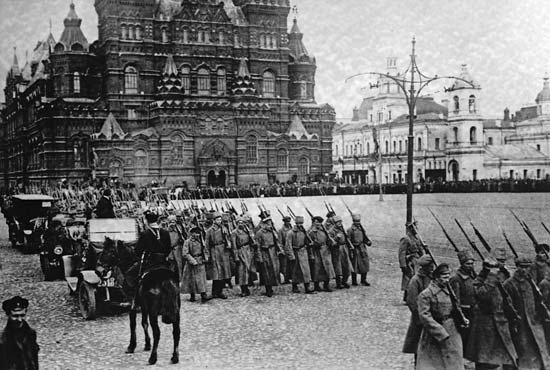
Soviet Union history: Bolshevik forces marching on Red Square
The first Soviet political police, created in December 1917, was the All-Russian Extraordinary Commission for Combating Counterrevolution and Sabotage (Vecheka or the Cheka). The Vecheka was very much an ad hoc organization, whose powers gradually grew in response to various emergencies and threats to Soviet union rule (see table 56, Appendix A). No formal legislation establishing the Vecheka was ever enacted. It was to serve as an organ of preliminary investigation, but the crimes it was to uncover were not defined, and the procedures for handling cases were not set forth. This situation was the result of the extralegal character of the Vecheka, which was conceived not as a permanent state institution but as a temporary organ for waging war against “class enemies.” Given its militant role and supra legal status, it is not surprising that the Vecheka, which was headed by Feliks E. Dzerzhinky, acquired powers of summary justice as the threat of counterrevolution and foreign intervention grew. After an attempt was made on Lenin’s life in August 1918, the Vecheka unleashed its violence on a wide scale – the so-called Red Terror- which continued until 1920 and caused thousands to lose their lives.
The end of the Civil War (1918-21), the demobilization of the Red Army, and the introduction of the New Economic Policy (NEP) in 1921 brought about a changed atmosphere that seemed incompatible with a terrorist political police. Lenin himself spoke of the need for a reform of the political police, and in early 1922 the Vecheka was abolished and its functions transferred to the State Political Directorate (Gosudarstvennoe politicheskoe upravlenie – GPU). When the Soviet Union was formed in December 1922, the GPU was raised to the level of a federal agency, designated the Unified State Political Directorate (OGPU), and attached to the Council of People’s Commissars. On paper it appeared that the powers of the political police had been reduced significantly. Indeed, police operations during the NEP period were considerably less violent, and the staff and budget of the political police were reduced. Initially, the OGPU was subject to definite procedural requirements regarding arrests and was not given the powers of summary justice that its predecessor had. But the legal constraints on the OGPU were gradually removed, and its authority grew throughout the 1920s. The OGPU was drawn into the intra party struggles that ensued between Stalin and his opponents and was also enlisted in the drive to collectivize the peasantry by force, beginning in late 1929, an operation that resulted in the death of upwards of 5 million people.
In July 1934, the OGPU was transformed into the Main Directorate for State Security (GUGB) and integrated into the People’s Commissariat of Internal Affairs (NKVD), which had been given all-union status earlier that year. The functions of the security police and those of the internal affairs apparatus, which controlled the regular police and the militia, were thus united in one agency. The NKVD was a powerful organization. In addition to controlling the security police and the regular police, it was in charge of border and internal troops, fire brigades, convoy troops, and, after 1934, the entire penal system, including regular prisons and forced labor camps, or the Gulag. During the period from 1934 to 1940, the NKVD took charge of numerous economic enterprises that employed forced labor, such as gold mining, major construction projects, and other industrial activity. In addition, the Special Board, attached to the NKVD, operated outside the legal codes and was empowered to impose on persons deemed “socially dangerous” sentences of exile, deportation, or confinement in labor camps. The Special Board soon became one of the chief instruments of Stalin’s purges.
Stalin’s domination over the party was not absolute at this time, however. Dissatisfaction with his policies continued to be manifested by some party members, and elements existed within the leadership that might have opposed any attempt to use police terror against the party. Among Stalin’s potential challengers was Sergey Kirov, chief of the Leningrad party apparatus. Conveniently for Stalin, Kirov was assassinated by a disgruntled ex-party member in December 1934. This provided Stalin with the pretext for launching an assault against the party. Although Stalin proceeded cautiously, the turning point had been reached, and the terror machinery was in place. From 1936 to 1938, the NKVD arrested and executed millions of party members, government officials, and ordinary citizens. The military also came under assault. Much of the officer corps was wiped out in 1937-38, leaving the country ill prepared for World War II. The era in which the NKVD, with Stalin’s approval, terrorized the Soviet union citizens became known in the West as the Great-Terror.
The war years brought further opportunities for the political police, under the control of Lavrenty Beria, to expand its authority.
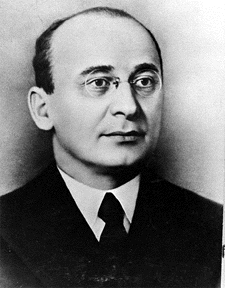
Soviet Union history – Lavrenti Beria. 1899- 1953 – Soviet KGB Leader
The NKVD assumed a number of additional economic functions that made use of the expanding labor camp population. The NKVD also broadened its presence in the Red Army, where it conducted extensive surveillance of the troops. Toward the end of the war, the political police moved into areas formerly under German occupation to arrest those suspected of sympathy for the Nazis. They also suppressed nationalist movements in the Estonian, Latvian, Lithuanian, and western Ukrainian republics.
Beria himself steadily gained power and authority during this period. In early 1946, when he was made a full member of the Politburo and a deputy chairman of the Council of Ministers (the new name for the Council of People’s Commissars), he relinquished his NKVD post, but he apparently retained some control over the police through his portages in that organization. In March 1953, following Stalin’s death, Beria became chief of the MVD, which amalgamated the regular police and the security police into one organization. Some three months later, he made an unsuccessful bid for power and was arrested by his Kremlin colleagues, including Khrushchev.
The “Beria affair” and the shake-up in the Kremlin that followed his arrest had far-reaching consequences for the role of the police in Soviet society. The party leadership not only arrested and later executed Beria and several of his allies in the MVD but also took measures to place the political police under its firm control. Henceforth, violence was no longer to be used as a means of settling conflicts within the leadership, and widespread terror was not employed against the population at large.
Soviet Union Security Department
The Khrushchev period was important for the development of the internal security departs. Legal reforms, personnel changes, and the denunciation of Stalin had a marked effect on the position of the police and the legal organs. As the successor to Khrushchev, Brezhnev did much to reverse the tide of reforms, but later, under Gorbachev, reforms progressed again. The reforms brought opposition to Gorbachev from the police apparatus because the changes curtailed police powers.
Soviet Union: Khrushchev Period
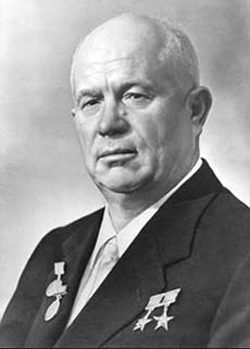
Soviet Union history: Khrushchev
One of the first reforms instituted by the post-Stalin leadership under Khrushchev was a reorganization of the police apparatus. On March 13, 1954 a decree of the Presidium of the Supreme Soviet established the KGB, attached to the Council of Ministers. The establishment of a state security apparatus separate from that of the regular police was designed to diminish the formidable powers that the police had wielded when its activities were concentrated in one organization. Henceforth, the functions of ensuring political security would be ascribed to a special police agency, whose powers were substantially less than they had been under Stalin.
The party leadership also instituted significant legal reforms to protect citizens from police persecution. On May 24, 1955, a new statute on procurator supervision was enacted by the Presidium of the Supreme Soviet. This statute provided procedural guarantees of pro curatorial power to protest illegalities committed by state agencies and to make proposals for eliminating these illegalities. Another reform that restricted the powers of the political police and protected citizens from police persecution was the enactment in December 1958 of the Fundamental Principles of Criminal Procedure, which were incorporated into the 1960 Russian Republic’s Code of Criminal Procedure and were still in effect in 1989, although they had been amended several times.
The new codes, which were established according to the Russian Republic model in the other republics as well, subjected the KGB to the same procedural rules to which other investigative agencies were subject and specified precisely the types of crimes the KGB was empowered to investigate. A new law on state crimes, enacted on December 25, 1958, and incorporated into the 1960 Code of Criminal Procedure of the Russian Republic, narrowed the range of political crimes that were embodied in the Stalinist codes and made criminal sanctions less severe.
Khrushchev’s policy of de-Stalinization also had significance for the role of the post-Stalin political police. His famous “secret speech,” delivered at the Twentieth Party Congress in February 1956, called attention to the crimes committed by the police under Stalin. This inevitably weakened the prestige of the KGB and demoralized its cadres, many of whom had participated actively in the purges.
These police and legal reforms were diminished somewhat by the appointment in 1954 of two long time police officials, Ivan Serov and Sergey Kruglov, to head the KGB and the MVD, respectively. Serov’s past was heavily tainted by his participation in the Stalinist police repression, as was that of Kruglov. Both, however, had lent their support to Khrushchev when he made his move against Beria, and apparently they had to be rewarded. Although Khrushchev and the party leadership wanted to demonstrate that they were “cleansing the ranks” of the police by purging many officials, they retained others who were loyal and experienced.
In December 1958, Serov was removed from his post as the KGB chief and replaced by Alexander Shelepin, a former Komsomol official. With his higher education in humanities and his untainted record, Shelepin did much to raise the stature of the KGB and to bring renewed efficiency and legitimacy to it. By the late 1950s, efforts were under way to improve the public image of the KGB by portraying its officials in a favorable light in the media and by publishing works on the history of the Soviet political police. In addition, changes in the legal codes in 1961 broadened the KGB’s investigative powers.
Shelepin himself may have been largely responsible for the campaign to rehabilitate the security police. Although he left his post as head of the KGB in December 1961, he continued to oversee the police in his capacity as Central Committee secretary, and his successor, Vladimir Semichastnyi, was a close ally. Both Shelepin and Semichastnyi appeared to have joined the ranks of opposition to Khrushchev sometime before his ouster in October 1964 and were actively involved in the plot to overthrow the party leader. De-Stalinization , legal reforms, and various other measures promoted by Khrushchev to curtail the activities of the security police had no doubt created resentment within its ranks and aroused the displeasure of leading the KGB officials.
Soviet Union after Khrushchev
Brezhnev evidently had learned a lesson from Khrushchev’s experience and went out of his way to raise the status of the police and clamp down on political dissent. The KGB’s investigative powers were extended in 1965 to include certain categories of economic crime, and it continued to be accorded favorable publicity in the Soviet press. Its growing prestige and authority accommodated those neo conservative trends that manifested themselves during the late 1960s and 1970s: curbs on cultural freedom, a crackdown on dissent, and a partial rehabilitation of Stalin.
Brezhnev and his party colleagues became worried about the ambitions of Shelepin, however, and decided to put an end to his influence over the security police. In May 1967, Semichastnyi was removed as the KGB chief, and by November of that year Shelepin was out of the Central Committee Secretariat. The new KGB chairman was Uriy I. Andropov, a Central Committee secretary who had served as ambassador to Hungary and later as head of the Central Liaison with Communist and Workers’ Parties of Socialist Countries Department. He was apparently a neutral figure politically, agreed upon by all members of the collective leadership; Brezhnev, however, managed to bring in several of his own portages to serve directly below Andropov. The most important of these was a KGB official named Semen Tsvigun, reportedly Brezhnev’s brother-in-law, who was made first deputy the KGB chairman in December 1967. Viktor M. Chebrikov was another official with links to Brezhnev who was brought to Moscow to serve in the KGB. The presence of his allies in the KGB leadership was a source of strength for Brezhnev, and he made certain that their careers prospered. In addition to encouraging favorable publicity for the KGB, Brezhnev was careful to ensure that employees of the KGB were well paid and enjoyed significant privileges and perquisites.
Brezhnev may have underestimated the political prowess of Andropov, however. Andropov benefited from the increased powers and prestige that the KGB gained under the Brezhnev leadership and became a powerful political leader in his own right. As Brezhnev’s death became imminent in 1982, Andropov began contending for the top party post. His success in reaching his goal in November 1982 was due partly to his attack, using the KGB files as weapons, on the Brezhnevites for their involvement in corruption. Not surprisingly, Andropov’s short tenure as general secretary (November 1982- February 1984) was marked by a stronger the KGB role. Even Andropov’s illness and death did not result in a decline forthe KGB. On the contrary, the extended period of political upheaval in the Kremlin following his death seemed to increase the KGB’s influence. Its officials received prominent coverage in the press, and the KGB representation on party and state leadership bodies grew.
Soviet Union: Gorbachev Era
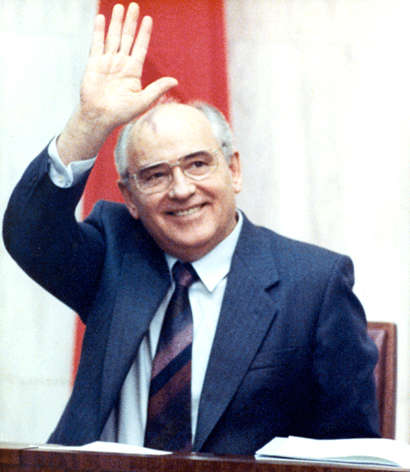
Soviet Union history: Gorbachev
After gaining the post of general secretary in March 1985, Gorbachev moved with unprecedented speed to implement personnel changes in the party and government. His success in getting rid of so many potential political opponents in such a short time surprised Western Soviet experts, particularly because Gorbachev did not have a substantial power base or patronage network of his own when he took office. Gorbachev apparently relied on the same bases of support that Andropov had used in his ascent to the top, which included the KGB. According to Western experts, Gorbachev appealed to the KGB for help in purging the Brezhnev old guard. The main vehicle used by Gorbachev in carrying out these purges was the anti corruption campaign. By the late summer of 1985, hardly a day passed without a report in the press on cases on bribery, embezzlement, or other forms of economic crime. In addition to high-level party and state officials, MVD and Procuracy employees came under fire for their failure to uncover crimes. Even MVD chief Vitaliy Fedorchuk fell victim to Gorbachev, losing his post in early 1986. Fedorchuk’s replacement, Alexander Vlasov, was a former party apparatchik (see Glossary) with no experience in law enforcement.
Although the regular law enforcement agencies were subjected to sharp attacks for their failure to combat crime, the KGB remained unscathed, despite the fact that it was empowered by law to investigate certain types of economic crime. There was some turnover in key the KGB posts, but these changes were not nearly as widespread as were the changes in the CPSU apparatus and in other state agencies.
Numerous signs pointed to the fact that the Gorbachev leadership was cultivating good relations with the KGB by maintaining its high prestige and political status. The KGB chairman Chebrikov was promoted to full membership in the Politburo just a month after Gorbachev came to power. He also figured prominently in the Soviet media. At the 27 Party Congress in February-March 1986, for example, he delivered a speech that was an unprecedented assertion of the power and authority of the KGB.
Although Gorbachev continued to rely on the KGB in his drive to purge the party and state apparatus of corrupt officials, toward the end of 1986 signs indicated that his relations with this organization were becoming strained. The KGB cannot have been pleased about the reformist polices promoted by Gorbachev, in particular openness in the media and liberalization of cultural norms. Calls for reform of the judicial and legal systems, voiced with increasing frequency in the autumn of 1986, signified that the Gorbachev leadership was attempting to curtail arbitrary the KGB actions against citizens. This attempt became even more apparent in January 1987, when Chebrikov acknowledged, on the front page of Pravda, that employees of the KGB had committed illegalities. Such an acknowledgment of KGB abuses was unprecedented. Even during the Khrushchev era, when the crimes of Stalin’s security police were exposed, the KGB was never criticized in the press. Observers speculated that, having depended initially on the KGB support to purge the Brezhnevites, Gorbachev decided by early 1987 that he was strong enough to embark on reforms that might antagonize this institution.
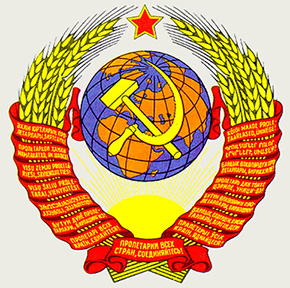
The Soviet Union
It was not long, however, before signs of opposition to Gorbachev’s policies arose, and a “conservative backlash” occurred. Although the opposition appears to have been led by disgruntled party leaders such as Egor K. Ligachev, the second-ranking member of the Politburo, the KGB probably joined forces with these conservatives. Chebrikov’s comments, in particular his strident speech delivered in September 1987, made it clear that the KGB would not allow the democratic reforms to go too far: “There must be a clear awareness that the restructuring is taking place in our state and society under the leadership of the Communist Party, within the framework of socialism and in the interests of socialism. This revolutionary process will be reliably protected against any subversive intrigues.” The subsequent ouster of a leading proponent of Gorbachev’s reforms, Moscow party chief Boris El’tsin, was an indication of the strength of the opposition to Gorbachev.
Although he made some strategic retreats in early 1988, Gorbachev continued to pursue his policy of perestroika, and exposures of illegal KGB activities continued. Even more threatening for the KGB were unprecedented revelations about security police terror under Stalin. Although the role of the police in the purges had been discussed since the Khrushchev era, glasnost’ resulted in a much more devastating critique of the role of the police during this period. Ethnic unrest of various nationalities, together with increasingly bold political demands by the Soviet intelligentsia, also presented the KGB with significant challenges. In a speech delivered in mid-April, Chebrikov expressed concern that things were going too far and that some individuals were “unleashing a wide-ranging arsenal of methods of social demagoguery and substituting bourgeois liberalism for the essence of the concept of socialist democracy.” Subsequently, in October 1988 Chebrikov lost his position as chief of the KGB and was replaced by Vladimir Kriuchkov.
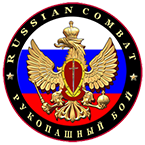




Leave a Reply